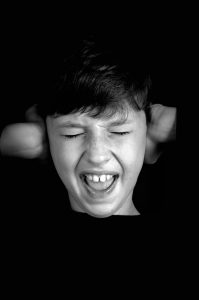The Importance of Addressing Anger in Childhood
 It is often said that the way we handle our emotions in childhood significantly influences our emotional landscape as adults. While the idea that unaddressed temper tantrums in toddlers can lead to explosive reactions in teenagers—and even mid-life crises—may sound exaggerated, there is an element of truth to the notion that unresolved emotions can manifest in troubling ways later in life. As someone who has worked closely with families and children, I have witnessed first hand how crucial it is to equip young ones with tools to understand and manage their feelings, ultimately fostering their emotional resilience as they grow.
It is often said that the way we handle our emotions in childhood significantly influences our emotional landscape as adults. While the idea that unaddressed temper tantrums in toddlers can lead to explosive reactions in teenagers—and even mid-life crises—may sound exaggerated, there is an element of truth to the notion that unresolved emotions can manifest in troubling ways later in life. As someone who has worked closely with families and children, I have witnessed first hand how crucial it is to equip young ones with tools to understand and manage their feelings, ultimately fostering their emotional resilience as they grow.
The Cycle of Anger: A Child’s Perspective
The story of a child grappling with anger can often mirror the struggles of adults facing challenges. For instance, I recall working with a client whose teenage son frequently lashed out over minor frustrations. Through our discussions, it became clear that these outbursts were not merely reactions to the present moment; they were echoes of unresolved conflicts from his early years. Each time he felt wronged—whether it was a simple disagreement with a sibling or a perceived slight from a friend—he would react not just to that instance but to a backlog of grievances that had accumulated over time. This pattern, I realised, was rooted in a lack of guidance during his formative years, where small injustices went unacknowledged and unaddressed.
The Lasting Effect of Unresolved Conflict
 In understanding this phenomenon, we can draw parallels to a compelling story shared by comedian Jason Manford, (when I watched him Live in Liverpool) who recounted a childhood experience of being bullied. Faced with the ultimatum from a bigger boy, he complied in hopes of avoiding conflict, only to find himself punched anyway. The emotional impact of that moment extended far beyond the loss of money; it was a violation of his boundaries that left a lasting mark. This scenario illustrates how small, seemingly insignificant incidents can build up a reservoir of unresolved anger, which later manifests as disproportionate reactions to new challenges.
In understanding this phenomenon, we can draw parallels to a compelling story shared by comedian Jason Manford, (when I watched him Live in Liverpool) who recounted a childhood experience of being bullied. Faced with the ultimatum from a bigger boy, he complied in hopes of avoiding conflict, only to find himself punched anyway. The emotional impact of that moment extended far beyond the loss of money; it was a violation of his boundaries that left a lasting mark. This scenario illustrates how small, seemingly insignificant incidents can build up a reservoir of unresolved anger, which later manifests as disproportionate reactions to new challenges.
The Gestalt of Negative Emotions
When we fail to express our emotions—whether it’s saying “that’s not fair” in response to a childhood injustice or addressing feelings of frustration in adulthood—those feelings don’t simply disappear. Instead, they become part of our emotional history, waiting to resurface in moments of stress or conflict. This accumulation of unresolved issues creates what psychologists refer to as a “Gestalt of negative emotions,” where our reactions are informed by past experiences rather than the present situation. When we encounter a trigger that evokes feelings similar to those we’ve previously experienced—especially if those past feelings were unresolved—we don’t react solely to the present moment. Instead, we draw upon a reservoir of past emotions, leading to responses that may seem disproportionate to the current event.
The Ripple Effect of Bullying
Imagine a person who faced repeated bullying in school. Each incident, whether it was name-calling or exclusion from games, can accumulate emotional weight. If this person later faces a minor criticism at work, their reaction might be far more intense than the situation warrants, as it taps into the unresolved hurt from their past experiences. This build up creates a cycle where current stressors are met with heightened emotional responses due to the baggage of past grievances.
Recently, I worked with a young person who had a difficult relationship with her parents during her teenage years. They often dismissed her feelings and belittled her concerns, leaving her with a sense of inadequacy. As an adult, she finds herself in a disagreement with a colleague at work over a project. Instead of simply addressing the issue at hand, she feels a surge of anger and frustration that seems out of proportion to the situation.
Recognising the Roots of Anger
The root of her intense reaction isn’t just about the disagreement—it’s about years of feeling unheard and undervalued. The unresolved emotions from her past resurface, making her response to her colleague feel like an emotional avalanche rather than a measured reaction to a work-related disagreement.
This “Gestalt” effect means that she may struggle to communicate effectively with her colleague, leading to misunderstandings or escalating conflict. If she can recognise that her reaction is tied to her past experiences, she might take a step back, reflect on her emotions, and address the current situation with a clearer perspective.
By understanding and processing her past, she can break the cycle and respond more proportionately, fostering healthier relationships both at work and in her personal life. This highlights the importance of addressing emotional experiences in childhood, as they can significantly shape our reactions as adults.
Teaching Children to Manage their Emotions
As parents, caregivers, or educators, it’s vital to recognise the significance of teaching children how to articulate their feelings and address conflicts constructively. Every time a child experiences a minor setback, such as a sibling scribbling on their artwork, it’s an opportunity to validate their emotions and guide them in expressing their feelings. By tackling these small issues as they arise, we can help children develop the skills necessary to navigate the complexities of their emotions as they grow.
While the idea that unresolved temper tantrums lead to mid-life crises may seem far-fetched, the underlying principle holds significant merit. Helping children process their emotions and learn effective coping strategies is essential for their emotional development. By fostering an environment where feelings can be expressed and conflicts addressed, we empower the next generation to face life’s challenges with resilience, ultimately breaking the cycle of unresolved anger that can plague families across generations.
If you would like to find out more on how I help children, teens and young people understand their thoughts, behaviours and emotions.
Book a 15min discovery call here >>>>
📧 louisa@nlp4kids.org
The original version of this article was written by Gemma Bailey, director of www.NLP4Kids.org. It was republished and rebuilt with additional content by Louisa Gauld-Crichton – Child Therapy Telford.
Leave a comment
This site uses Akismet to reduce spam. Learn how your comment data is processed.

Leave a Reply